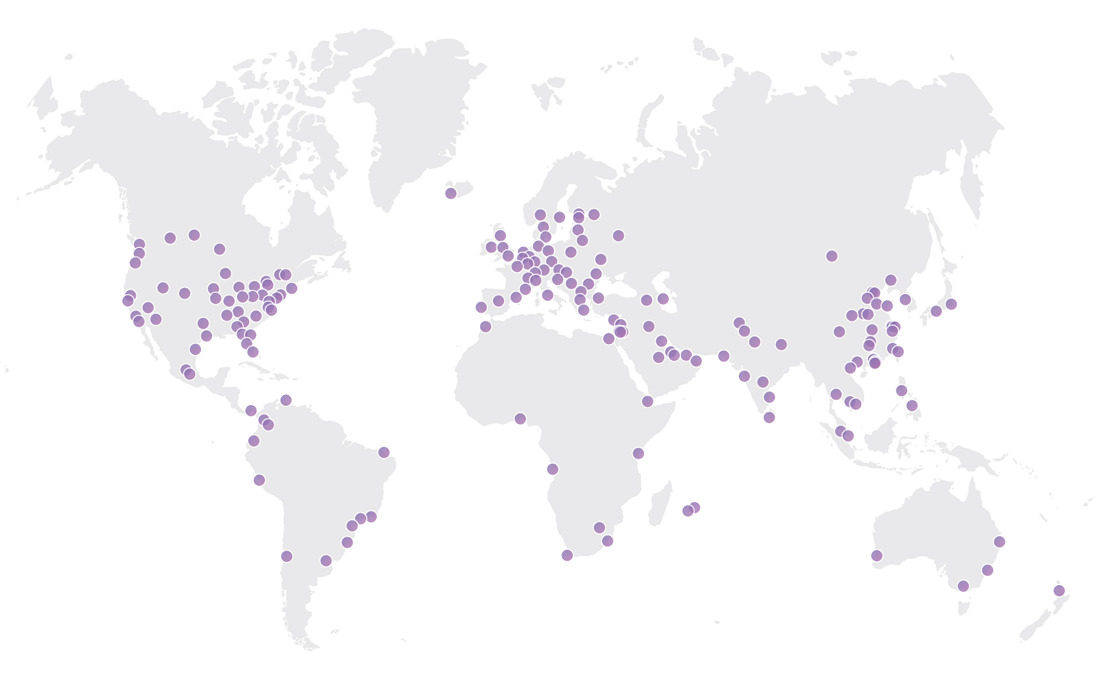By: Josiah Huckins - 8/24/2019
minute read
Content Delivery Networks (CDNs) are becoming a key to success in optimizing end user experience.
Major video and game streaming services rely on them to push petabytes of video data to millions of subscribers. Any brand marketing site worth its weight will use them to ensure customers see a fast site, tailored to their device. There are many CDNs out in the wild, each varying in features and abilities. Two of the most popular by far (as of 2019) are Akamai and Cloudflare.If you're shopping for a CDN provider, these are the big kids in the neighborhood. Either would be an ideal choice if you're serious about optimized delivery, but each has its own set of pros and cons that you need to consider. I've had the opportunity to work with each provider, and can attest to their strengths.
Akamai
For those unfamiliar with how a CDN works, its primarily a vast network of caching servers spread geographically (often globally) in numerous "point of presence" data centers. These data centers are located physically closer to users than the site or applications web servers (often referred to as the origin). This allows for optimized request routing and less latency to get a response. For web apps and streaming, lower response time is the number 1 goal. Akamai has taken this concept and built an enormous network of servers, serving users pretty much everywhere. At the time of this writing, they have 250,000+ servers and 1,600 networks. They service large Fortune 500 companies, e-commerce retail, entertainment, financial services and even the U.S. Department of Defense. In short they are everywhere, supporting every industry vertical.Akamai offers traffic optimization via their Sure-Route technology. They have robust security options, including DDoS protection, dedicated WAFs (web application firewalls) and client reputation analysis to detect malicious client hosts. They also offer adaptive media delivery using HTTP Live Streaming, HTTP Dynamic Streaming and other similar protocols/formats. Cloud storage is also available via their Net Storage product. Their CloudTest product is particularly useful as it offers the ability to run load testing software as a service. This allows you to simulate traffic spikes in their production network, without causing an outage.
Cloudflare
Cloudflare has quickly grown from a small company serving a few hundred clients to a household name in content delivery. They offer cached content from data centers in 190+ countries and provide many security features. Like Akamai, they offer DDoS protection and WAFs. They also offer bot mitigation as well as an identity and access solution that leverages existing SSO providers. Their authoritative DNS services have been verified as some of the fastest available. In addition to formal CDN offerings, Cloudflare offers a free to use, privacy focused DNS service (using IPs 1.1.1.1 and 1.0.0.1).In a few brief years, the Cloudflare network has grown at a rapid pace, with numerous locations globally.

Cloudflare Network Map | Source: Cloudflare
As mentioned, each CDN has their own pros and cons.
Akamai Pros
- Akamai is the largest CDN, period. Not only are they the largest but they are also the most experienced with a decade over Cloudflare in the business.
- They offer customer tailored solutions, often specific to the site or company. This also often comes with dedicated account representatives to assist in configuration changes.
- Cloud DNS, with proven increases in response time over traditional DNS backbone services
- Content analytics to measure media performance metrics in real-time
- Developer APIs into their services, to automate many tasks
Akamai Cons
- If you're a small company or individual, you may find their pricing hard to digest. Speaking from experience, using their caching service can march into the $1,000 zone and beyond.
- Due to the sheer scale of their network, sometimes edge node caches become stuck and cannot be cleared via their self-service portal. This requires technical support to assist in a manual cache flush.
Cloudflare Pros
- Pricing options for everyone, including a free option for personal use
- Robust DNS offerings, including DNSSEC options
- Serverless Javascript applications that run on their network
- Site security analytics regarding threats avoided and bot traffic mitigated
- More user friendly self-service controls than the competition. You can connect your site to their CDN network in minutes.
Cloudflare Cons
- There is no origin push option, preventing the origin from controlling when cache-able content is fed into the Cloudflare network.
- Support options are more limited for the Free and Pro offerings compared to Business and Enterprise.
Who Wins? Which is right for you?
The real choice here comes down to price and the complexity of your site.If you're running a site for a large organization, with capital to spare, the best choice is going to be Akamai. Their massive network can greatly supplement your internal IT infrastructure with better security and performance. For applications with millions of hits per day, they are already scaled to meet any traffic demand you might throw at them.
If you're not a large enterprise or even a mid-tier firm, Cloudflare makes more sense for you. With their Free option, you can use them on a trial basis before committing to a higher level of service. Cloudflare security has improved over the years and they continue to grow their network. They have proven to be able to keep pace with increasing demand, despite having a smaller network.
